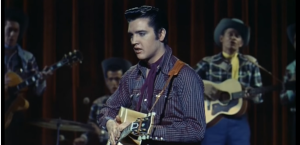Introduction
In the soul-stirring realm of ballads, Elvis Presley’s “Lonesome Cowboy” emerges as a melancholic rhapsody—a musical journey that delves into the depths of solitude. This iconic track, released in the 1960s, is not just a song; it’s a poignant reflection on loneliness, marked by Elvis’s expressive vocals and the evocative lyrics that resonate with listeners. Join us as we unveil the musical solitude, explore the melancholic journey, and delve into the timeless appeal of “Lonesome Cowboy.”
Unveiling “Lonesome Cowboy”
“Lonesome Cowboy” stands as a testament to Elvis Presley’s ability to convey profound emotions through music. This ballad is more than just a tune; it’s a window into the world of solitude, where Elvis’s vocals paint a vivid picture of the lonesome cowboy’s emotional landscape.
Elvis’s Musical Solitude
Elvis’s rendition of “Lonesome Cowboy” is a musical solitude—a somber exploration of loneliness that tugs at the heartstrings. His vocals, filled with emotion, carry the weight of the lonesome cowboy’s story, creating an intimate connection with the listener.
1960s Ballad Elegance
Released in the 1960s, “Lonesome Cowboy” epitomizes the elegance of ballads during this era. The slow tempo, coupled with Elvis’s distinctive vocals, captures the essence of emotional introspection and solitude, reflecting the cultural nuances of the time.
Evocative Melodies and Heartfelt Performance
The song’s evocative melodies and heartfelt performance elevate it to the status of a classic ballad. Elvis’s expressive melancholy, coupled with the poignant lyrics, transforms “Lonesome Cowboy” into a timeless exploration of human emotions.
Conclusion
“Lonesome Cowboy” serves as a testament to Elvis Presley’s ability to convey complex emotions through his music. As we unveil the musical solitude and explore the melancholic journey within this timeless classic, we witness the enduring magic of Elvis’s heartfelt performance in capturing the essence of loneliness.
